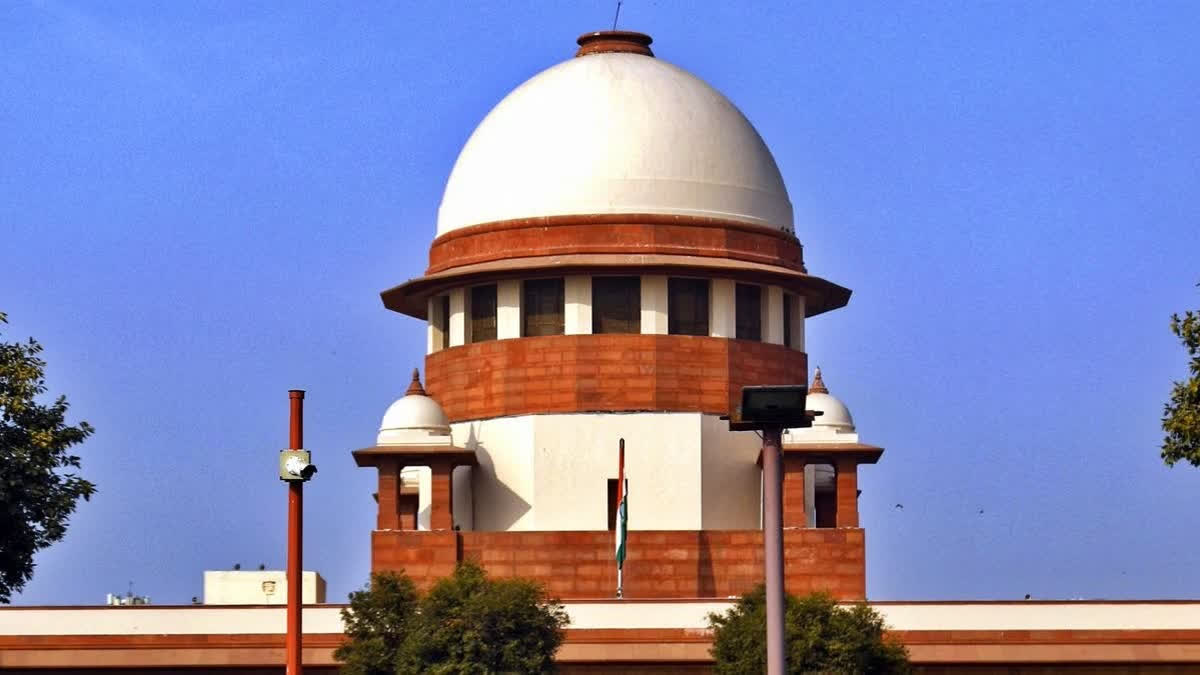New Delhi: The Supreme Court on Tuesday by a unanimous view refused to strike down provisions of the Special Marriage Act (SMA) meant for the registration of inter-faith couples and also recognised the right of a transgender or inter-sex person to marry a heterosexual person.
Chief Justice of India DY Chandrachud said, “The SMA was enacted to enable persons of different religions and castes to marry. If the SMA is held void for excluding same-sex couples, it would take India back to the pre-independence era where two persons of different religions and caste were unable to celebrate love in the form of marriage”.
The Chief Justice upheld the rights of civil union for queer couples and added that the court cannot either strike down the constitutional validity of SMA or read words into it because of its institutional limitations. He said such a judicial verdict would not only have the effect of taking the nation back to the era when it was clothed in social inequality and religious intolerance, but would also push the courts to choose between eradicating one form of discrimination and prejudice at the cost of permitting another.
The bench noted that the submissions of the petitioners indicate that this court would be required to extensively read words into numerous provisions of the SMA and other allied laws. The court is not equipped to undertake an exercise of such wide amplitude because of its institutional limitations, said the Chief Justice.
The Chief Justice said an exercise to determine whether the SMA is unconstitutional because of under-inclusivity would be futile because of the limitations of this court’s power to grant a remedy. “Whether a change should be brought into the legislative regime of the SMA is for Parliament to determine. Parliament has access to varied sources of information and represents in itself a diversity of viewpoints in the polity. The court in the exercise of the power of judicial review must be careful not to tread into the legislative domain”, he said.
Also read: SC for ending discrimination of queer couples, urges govt to form panel to address their concerns
Justice Sanjay Kishan Kaul, in a separate judgment, said it would also not be prudent to suspend or strike down the SMA, given that it is a beneficial legislation and is regularly and routinely used by heterosexual partners desirous of getting married. He agreed with a contention of Solicitor General Tushar Mehta that tinkering with the scope of marriage under the SMA can have a cascading effect across other laws.
Justice S Ravindra Bhat, jointly with Justice Hema Kohli, said that the SMA sought to provide an avenue for those marriages that did not enjoy support in society or did not have the benefit of custom to solemnise, it would be quite a stretch to say that this included same-sex marriages. Justice Bhat said the challenge to the constitutionality of the statute must fail.
Justice PS Narasimha, in a separate opinion, held that the constitutional challenge to the SMA and the Foreign Marriage Act,1969, must fail, for the reasons indicated in the opinion of Justice Bhat. The apex court said transgenders in heterosexual relationships have the right to marry under existing laws, including personal laws, which regulate marriage.
The Chief Justice said, “A transgender man and a transgender woman can also marry. Inter-sex persons, who identify as a man or a woman and seek to enter into a heterosexual marriage, would also have a right to marry. Any other interpretation of the laws governing marriage would be contrary to Section 3 of the Transgender Persons Act and Article 15 of the Constitution”.
The Chief Justice said the state must enable the LGBTQ community to exercise its rights under the Constitution, and queer persons have the right to freedom from coercion from their natal families, agencies of the state including the police, and other persons.
Also read: In 3:2 majority verdict, SC refuses the right of adoption to queer couples
Justice S Ravindra Bhat, along with Justice Hima Kohli, said they agree with the part of the Chief Justice’s opinion, which contains the discussion on the right of transgender persons to marry. Justice Bhat said transgenders in heterosexual relations have the right to marry under existing laws, including personal laws regulating marriage.
Justice Bhat said, “We are also in agreement with the discussion relating to gender identity i.e., sex and gender are not the same and that there are different people whose gender does not match with that assigned at birth, including transgender men and women, inter-sex persons, other queer gendered persons, and persons with socio-cultural identities such as hijras] as well as the right against discrimination under the Transgender Persons Act 2019”.



